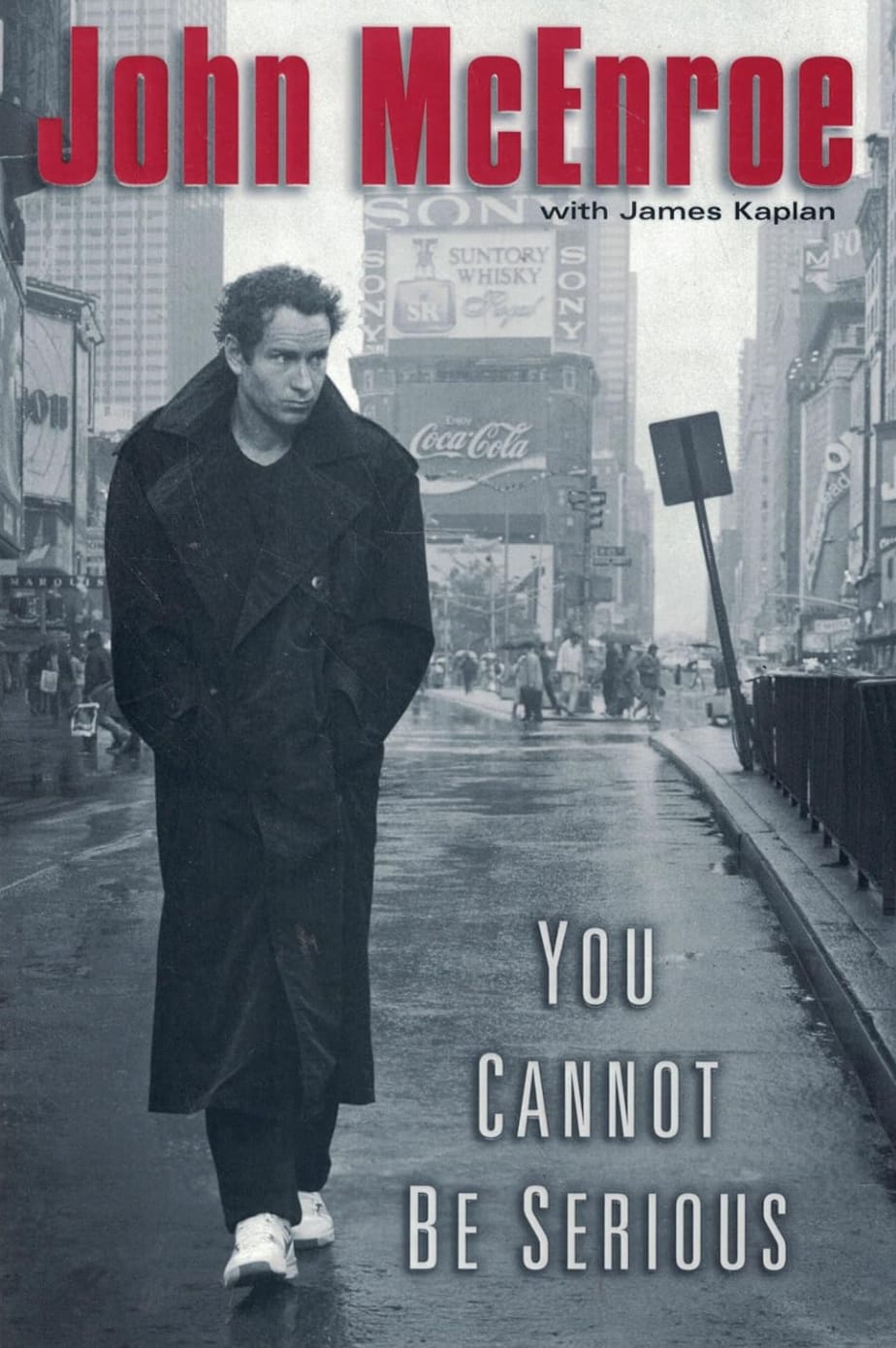I remember several years ago when our kids were playing tennis there was a young man who used to strategy to slow play down when he was losing. He had a towel to wipe the sweat off his face and arms and racket that he had stuck into the fence behind the baseline, and after serve, he would go get the towel, wipe his face his hands and the racket. At first, it was a real obvious as to what he was doing, but as time went on, it was very apparent what he was doing. There were several people watching after a few games of this. A man from the bleachers said quite loudly, hoping that the player would hear him “hey, stop the shtick! We know what you’re doing.”


Tennis legend, John McEnroe and All Time Great, Wayne Gretzky, a contrast in they strategy as young athletes.
If you are old enough to remember watching John McEnroe play tennis in the eighties, you may remember his ‘Schtick.” He would question calls from the line judges and his famous line, “Are You Serious?!” As he threw up his arms and asked the tennis official. He even wrote a book many years later where he addressed his poor behavior on the court and his “schtick.” Fortunately, he has moved beyond the jerk behavior and is an outstanding tennis analysis who commentates on the Grand Slam matches and if you observed him now, you wouldn’t guess that he was the same person known for those antics. I remember teaching a lesson to our kids about being a good sport when participating in athletics. We used the comparison of John McEnroe and Wayne Gretzky. We watched videos of them both as young competitors and there was no comparison as to who they should model. Gretzky was a fine example of how to conduct himself while playing both on and off the ice.

Schtick is defined as a usually comic or repetitious, performance routine. We might think of it as a performance by an actor or an actor/actress who plays the same role, like Will Ferrell, Jennifer Aniston or a Ben Stiller Character. The same hilarious almost unimaginable characters Ferrell is famous for or the unattached young, attractive and single gal Jennifer Aniston plays or the Ben Stiller, funny good guy who gets himself in a predicament. However, these situations are not just fictional they are real life characters as well and people can be known for funny schtick or behavior, bad schtick, like McEnroe or the teenage young man on on the tennis court and they can be the job you are known for.
Tim Russert was a journalist with his own schtick. He passed away at NBC in Washington DC from a heart attack. In the world of media and back biting journalists he was known as one of a kind. His reputation was that of respect for those who he might not have seen eye to eye with. Colleagues from across the networks and papers had his respect. He was the longest running host of NBC’s Meet the Press at the time. He was known for his ability to respectfully, ask the hard questions, sometimes backed up by video. For example, if he were interviewing a political candidate, he was ask his question, if their opinion had changed on a topic, he would then play a clip of them saying their former stance and then, respectfully give them an opportunity to explain what changed for them, as it’s fair to change one’s mind with more or new information. Tim’s “schtick” was that he was basically a ‘nice’ guy. He was born in Buffalo, one of four children born to a house wife and sanitation worker. he went to John Carroll University and then on to Law School at Cleveland State University. Raised a devout Catholic, his father worked several jobs to put all four kids through Catholic schools and college. If you didn’t know his background, you would wonder what made him such a grounded and respected journalist and attorney. He never forgot the struggles of his family and his dad’s dedication to his children.
Each one of us has our own, “schtick,” or how we go through life. Most human behavior follows patterns. How do others view Us? Some are known by their behavior or the way they operate, their “MO,” modus operandi, which is Latin term for an individual’s or a group’s habitual way of operating, which forms a discernible pattern. Sometimes this is used when describing criminal behavior. MO can also be defined as a specific method of operating.
The further along we get along on the path of life and the more experiences we have, the more we become aware or observant of people’s behavior, MO or “schtick.” I notice it more and more. You can see it in certain celebrities, certain professions or focus groups. Take Samaritan’s Purse, just mentioned recently in a blog post. You know when you see the trucks coming or Franklin Graham on television being interviewed about his organization that comes in to help when disasters strike, they are reputable. They are there to roll up their sleeves, it matter not to them who you are, what part of the country you are in or your religious beliefs or political affiliations. No! They are there to show God’s love and compassion and do what is required to help. They do the right thing. Think of the other organizations or companies out there that ‘do the right thing’, no matter what and the people out there who just ‘do the right thing’ whether there is anyone looking or not, or considering how it benefits them.
Back to Tim Russert. I once heard him in an interview give the nuns at the Catholic School he attended, credit for giving him the tools to succeed in life to read, to write, to do arithmetic and the ability to know right from wrong. Maybe that’s a good measure of one’s “schtick” out in the real world. Does their Schtick or MO, show their ability to decipher between right and wrong? And is that a measure of a person, do they know right from wrong and how to treat others? What’s YOUR schtick? And what does it say about you? Does it lead to great days?







